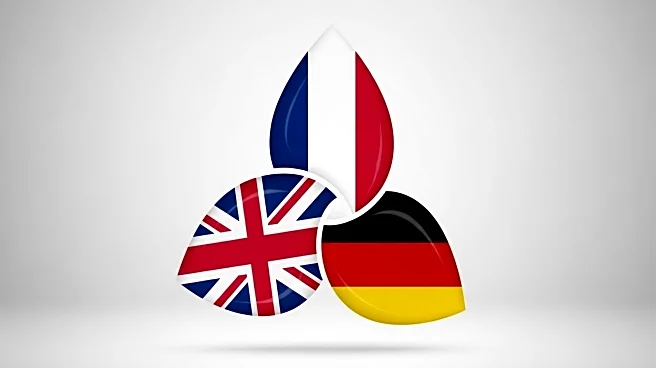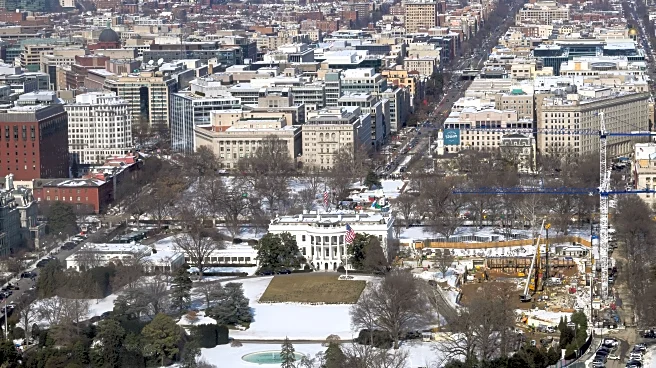What's Happening?
Britain, France, and Germany have initiated a 30-day process to reimpose United Nations sanctions on Iran due to its nuclear activities. This action follows accusations that Iran has not adhered to the 2015 Joint Comprehensive Plan of Action (JCPOA), which aimed to prevent the development of nuclear weapons. The JCPOA, agreed upon by Iran and several world powers, including the U.S., lifted sanctions in exchange for nuclear program restrictions. The snapback mechanism allows for the reinstatement of sanctions if Iran is found to be in significant non-performance of its obligations. The UN Security Council must vote within 30 days to continue Iran's sanctions relief, requiring at least nine votes in favor and no vetoes from the U.S., Russia, China, Britain, or France.
Why It's Important?
The reimposition of UN sanctions on Iran could have significant geopolitical and economic implications. It may further strain relations between Iran and Western countries, potentially impacting global oil markets and regional stability. The sanctions include an arms embargo, bans on uranium enrichment, and restrictions on ballistic missile activities, which could hinder Iran's military capabilities. Additionally, the move may reinforce the economic effects of the U.S.'s unilateral 'maximum pressure' sanctions regime, affecting Iran's economy and its international trade relationships.
What's Next?
If the Security Council fails to pass a resolution to extend sanctions relief, all UN sanctions on Iran will be reinstated in late September. This could lead to increased tensions between Iran and Western countries, particularly if Iran decides to cease its commitments under the JCPOA. Russia and China have proposed extending the nuclear deal until 2026, but their draft resolution includes language that could block the reimposition of sanctions, adding complexity to the situation.










